-
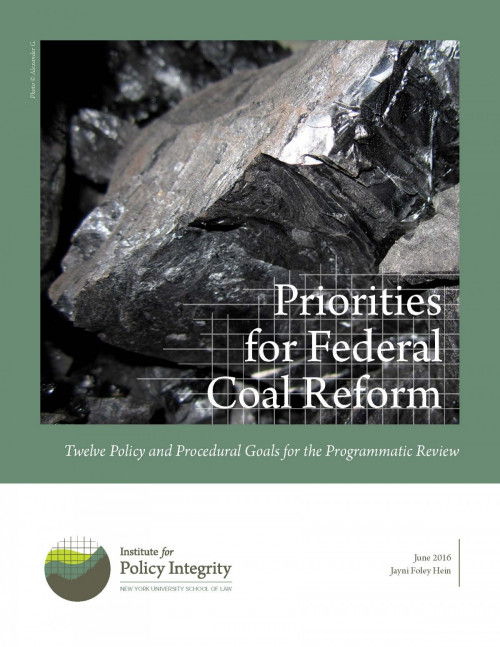
Priorities for Federal Coal Reform
Twelve Policy and Procedural Goals for the Programmatic Review
This report highlights twelve policy and procedural recommendations for the review of the federal coal program. These reforms are intended to help modernize program and so that it can provide maximum net benefits to American taxpayers. The programmatic review should identify opportunities to increase revenue, reduce greenhouse gas emissions, and align federal land management with U.S. climate change goals, paying enormous dividends to the public.
-
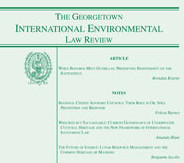
Legal Pathways to Reducing Greenhouse Gas Emissions Under Section 115 of the Clean Air Act
The most efficient legal tool for addressing U.S. climate pollution can likely be found in an unused provision of the Clean Air Act. Section 115 of the Act, titled “International Air Pollution,” authorizes the EPA to develop and implement an economy-wide, market-based program to reduce domestic greenhouse gas emissions. This article, jointly authored by a team of law professors and attorneys at three of the country’s leading institutes focused on climate change and environmental law, offers an in-depth analysis of Section 115, which would provide the most flexible approach for achieving the targets from the Paris climate agreement.
-
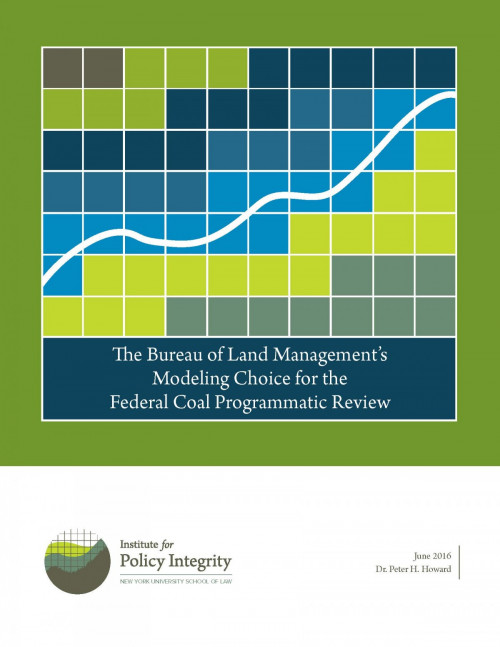
The Bureau of Land Management’s Modeling Choice for the Federal Coal Programmatic Review
There are multiple power sector models available to the Department of Interior (DOI)’s Bureau of Land Management (BLM) for analyzing the effect of current and alternative coal regulations and leasing policies during preparation of its programmatic environmental impact statement (PEIS). This document lays out model selection criteria to assist BLM in weighing the benefits and costs of these available models, and offers recommendations for model selection, highlighting the tradeoff between model complexity and transparency.
-
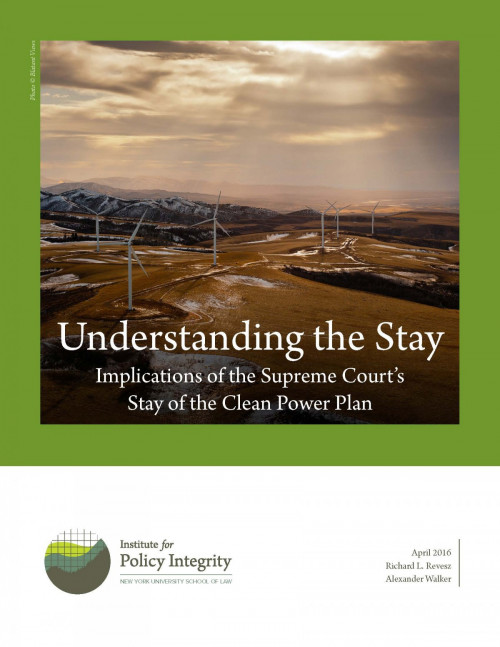
Understanding the Stay
Implications of the Supreme Court’s Stay of the Clean Power Plan
Since the Supreme Court stayed EPA’s Clean Power Plan, which regulates carbon dioxide emissions from existing fossil fuel-fired power plants, opponents of the plan have been making unfounded assertions about the consequences of the stay. This policy brief aims to clarify the stay’s implications for EPA’s implementation work and the plan’s future compliance deadlines.
-
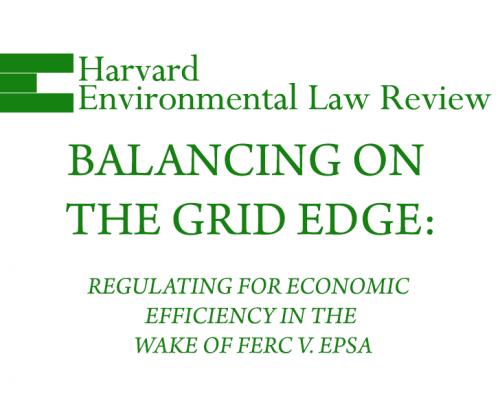
Balancing on the Grid Edge
Regulating for Economic Efficiency in the Wake of FERC v. EPSA
This new article from senior attorney Denise Grab is featured in a special edition of the Harvard Environmental Law Journal that focuses on the Supreme Court’s FERC v. EPSA case.
Viewing all publications in Climate and Energy Policy
